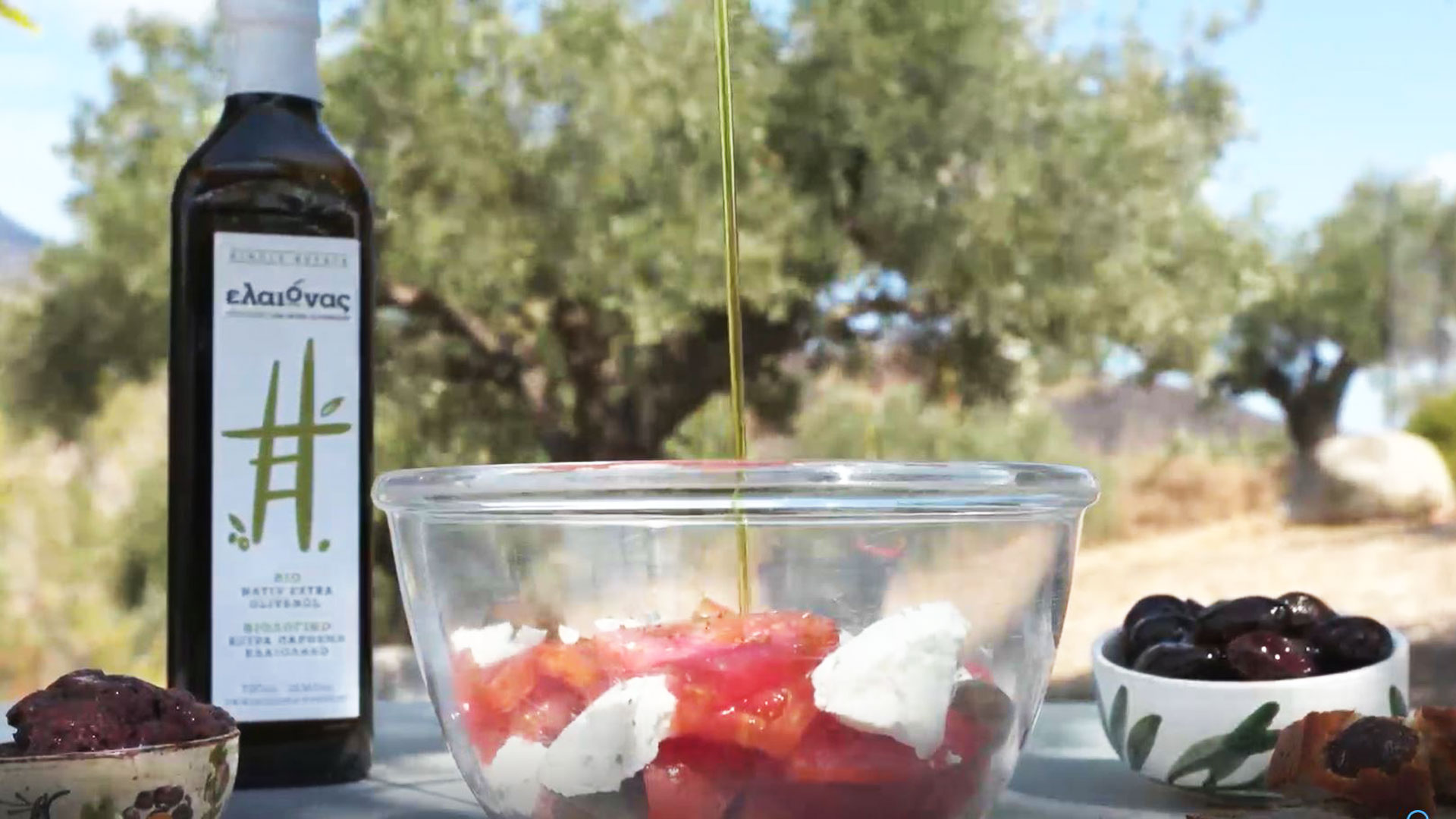Olive oil storage
According to regulations, the shelf life of extra virgin olive oil is a maximum of 18 months. However, the storage conditions must be ideal. Store in a dark place, with a temperature between 15-18 degrees Celsius, without moisture.
Keep in mind that oxygen is one of the biggest enemies of virgin olive oil! Secure it from oxygen as best you can!
If you have purchased a large package (max 5 liters) you must divide it into dark glass bottles, well washed if they have already been used and well closed.
What is acidity?
Acidity is one of the evaluation and ranking indicators of an olive oil. It is usually expressed as a percentage (e.g. Extra Virgin Olive Oil has acidity of 0-0.8%), and represents the percentage of free fatty acids. Acidity is due to various factors, such as the way the fuit is been harvested and stored , its ripening stage, etc. Olive oils with high acidity spoil easier and faster than others. Acidity is not perceived by organoleptic examination (we do not feel in when we taste the oil), only by chemical.
Oxidation, which used to be called rancidity, is a chemical alteration and occurs when olive oil comes into prolonged contact with light and oxygen (poor storage conditions), so it acquires an unpleasant taste.
Oxidation and acidity are two different concepts.
What are the white suspensions that appear in the oil?
The white suspensions or "waxes" that appear in the oil are a completely natural consequence of its composition. They are created by storing it at low temperatures. It is normal for a product in which no processing at all is done , so all its characteristics remain as the olive oil comes out of the olive press.
It is best to use extra virgin olive oil at the end of cooking.
Olive oil is rich in natural antioxidant substances, such as polyphenols and vitamins A and E. It is good to add olive oil at the end of cooking so that these valuable ingredients as well as its organoleptic characteristics (taste and aroma) remain unaffected.
Olive oil is also suitable for frying.
Olive oil, due to the natural antioxidants it contains, remains stable even at high temperatures. As long as we don't reach a temperature where it will smoke.
Good practices
Choose the olive oil that satisfies you with its aroma, density, and full flavor. The taste of the food, after all, is the primary criterion. Try taking one or two tablespoons before each meal. Do you know that a spoonful of olive oil before drinking alcohol will help you stay sober? But even after drinking alcohol, it restores sobriety and calms the stomach.
Olive oil has been known for skin care since Homeric times. It is also used to remove spines from sea urchins, because it softens the skin and brings the spines to the surface.
Olive oil is essential for our health
- It has great nutritional value because it consists of monounsaturated fatty acids (such as oleic acid), fat-soluble vitamins (such as vitamin E) and polyphenols (antioxidants).
- Monounsaturated fatty acids have been linked to maintaining cardiovascular health.
- Specifically, polyphenols seem to be associated with heart health, acting against oxidative stress, while they also protect the quality of the olive oil since they affect its aroma and taste and at the same time act against its oxidation.
- After many scientific studies, it has now been proven that olive oil is a valuable ingredient and a powerful weapon against chronic diseases and contributes to:
- In the reduction of "bad" cholesterol (LDL) in the blood
- In maintaining the content of the blood in "good" cholesterol (HDL)
- In the prevention of cardiovascular diseases and in the protection of the body from coronary disease due to the strong antioxidants it contains
- In the better absorption of calcium by the body • In the correct metabolism of diabetics and consequently in the balance of sugar prices
- In the good functioning of the intestine
- In the treatment of stomach and duodenal ulcers, since it facilitates digestion
- In the reduction of gastric fluids
- In the prevention of cancer

